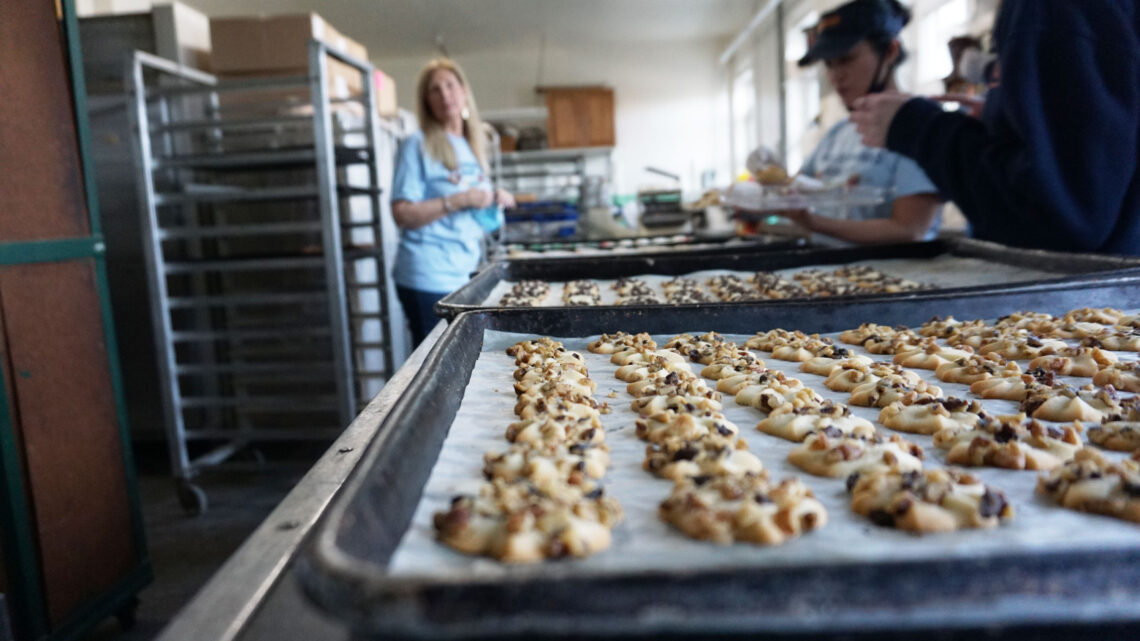
New York’s 100-Year-Old Businesses Offer Lessons in Survival
January 21, 2022What’s reliable about New York City is change.
It’s what a batch of businesses around the boroughs have been adapting to — and counting on — for at least a century, even before construction of the Empire State and Chrysler buildings.
These businesses made it through the Roaring Twenties and the Great Depression, all the way through the 2008 financial crisis and the pandemic, so far — even as a spike in COVID-19 cases means they face further uncertainty.
Over the decades, these mostly family-owned businesses have balanced sticking to tradition and pivoting when needed. They’ve maintained anchors in local communities even as their customer bases have grown.
The longevity and resilience of such businesses shows “the commitment to New York City and commitment to their community and to the customers that they have,” said Clinton Blume, president of the Hundred Year Association — itself not yet 100 years old, having started in 1927.
“A lot of companies come and go, but these are the ones that have survived and have kept their culture.”
Five businesses around the city can teach lessons about what it takes to carry on.
‘We’ve Weathered the Storm’
William Poll Gourmet Foods sells provisions and provides catering from its Upper East Side storefront on Lexington Avenue. The shop prioritizes tradition, relying on “tried and true” family recipes and the top-of-the-line food imported from Europe, according to President Stanley Poll, whose parents founded the company in 1921.
“Because it has the family name, I guarded that with my life,” Poll, 82, said. “The recipes have weathered the storm. We’ve weathered the storm.”
The shop initially offered mainly tea sandwiches and hors d’oeuvres, evolving to a more extensive array of foods, including elaborate gingerbread houses, and later embracing e-commerce to ship its goodies around the globe.
Even as the pandemic changed the buying habits of his customers in recent years, Poll said they “still want quality”: the comforting chicken pot pie, popular watercress dip, French chocolates and small-batch baked potato thins — the kind of things that kept actors like Kirk Douglas, Lauren Bacall and Yul Brynner coming back.
The company hit its 100-year milestone sometime last year but Poll didn’t mark it. Instead, he will “celebrate the launch of the second 100” with a store renovation to begin in the summer and scheduled for completion in the fall. Still, he’s planning for the future by looking to the past. He’s trying to source a tart from Saint-Tropez he first discovered in the 1980s, for example.
“We’re bringing back a lot of the old because it may fade from sight, but it never fades from your memory,” Poll said.
Pushing Through Hard Times
Perseverance in the wake of hardship has helped Cress Floral Decorators survive in different iterations since 1903, when it took the form of a pushcart in Manhattan.
“You take a deep breath and do what you have to do,” said Lori Cress, who helms the florist with her husband Tom, whose grandfather founded the business, which provides floral decor for weddings and events.
During the economic recession in the early 1980s, Cress had to shutter a previously thriving Long Island City storefront. The family also moved their Woodside location to Little Neck, the site ever since.
They rode out a similar wave following the 2008 crash, when Cress and her husband refinanced their home, and she got a job at Bloomingdale’s to make ends meet.
Hurricane Sandy led to lots of cancelled weddings — a large disruption given Cress’ planning process starts about two years before the blessed date.
But the pandemic was “a whole different story,” Cress said. Couples postponed their weddings multiple times, and the business closed for three months. Weddings started up again in March 2021. But by June, Cress had only as many weddings in the month as she typically had in a single weekend.
The pandemic took an emotional toll beyond the financial one. When customers called Cress to cancel weddings or request funeral flowers, they’d talk about their hardships and worries.
Now she’s got “tons and tons and tons” of weddings scheduled for 2022, while booking them for 2023.
What keeps her going? “When my bride hugs me and kisses me and the moms tell me how beautiful everything is,” Cress said, shedding some tears.
Loyalty Works Both Ways
Defonte’s Sandwich Shop in Red Hook will turn 100 this year. For Nick Defonte, part of the third generation to run the shop, loyalty is the secret sauce.
“My father always told me, ‘Treat everybody good, treat everybody with respect, and they’ll always come back,’” he said.
After Hurricane Sandy and severe snowstorms, customers returned within four days, he said.
Some customers come in five days a week, and others have been ordering the same sandwich for as long as 70 years. Some reminisce about buying a foil-wrapped sandwich for 10 cents to take on their elementary school field trips. Defonte has known some customers since he was a child. He gets worried if days pass and his regulars don’t show.
He continues his grandfather’s tradition of giving sandwiches to people who can’t afford them.
“Nobody ever walks out of here hungry,” he said. “When you treat people like that, when they land back on their feet, they remember you.”
The loyalty extends to workers and suppliers, too. His longest-serving employees have been working at the shop for decades, appreciating the hours that end relatively early compared to most food industry jobs.
And in the wake of supply chain issues, Defonte relies on longstanding relationships to get what he needs.
“Thank God we got guys who we’ve been doing business with for years, so we sort of come first, in a lot of ways,” Defonte said, pointing to Kings Highway Bakery, which supplies the shop’s bread, as an example. “We’re almost family.”
Being Nimble
As Frank’s Sport Shop in The Bronx rounds out a century this year, being on the cutting edge has made the store indispensable. Sure, it’s always sold live bait, uniforms for essential workers like EMTs and postal workers, and authentic jerseys, but Frank’s was also one of the first to sell brands like Canada Goose, Carhart, Under Armour and Timberland before they “became fashion.”
That’s according to Ron Stein, the general merchandise manager and third generation to run the store, which works with 30 Major League Baseball teams, provided products for “Saturday Night Live” segments and sold beds to hospitals during the pandemic.
Stein finds it satisfying when, through word of mouth or visits to trade shows, he finds something new and watches customers embrace it. He wants to soon offer jackets with built-in heaters and baseball bats designed with Bill Nye, the science guy.
Supply chain problems, though, still pose an issue. Some orders he placed a year ago have yet to arrive.
“I’m chasing goods right now,” Stein said.
He’s had to get creative to procure items, negotiating with companies and swapping merchandise with friends in the industry, but still expects limited options and sizes for footwear in the spring.
Beyond that, he says he’ll “see what happens. I’ll let you know in five or 10 years.”
Return to Roots
Staten Island baker Jill Holtermann Bowers and her crew of nine employees returned to her great grandfather’s roots to better serve their most vulnerable customers during the pandemic.
Back in 1878, Holtermann’s Bakery delivered custom orders to customers’ homes via horse and buggy. In the decades that followed, customers typically lined their own cars up outside the South Shore bakery to receive orders.
But by early 2020, Holtermann Bowers noticed that some seniors began to call and tack on essential groceries, like eggs and milk, to their typical orders. So she’d dispatch employees to deliver orders directly to their doors.
“We tried to help people out in need, too, because that’s what it’s about when things like that hit. This is what community businesses do,” said Holtermann Bowers, who started working in the bakery straight out of high school. “For the older customers that were afraid to go to the supermarkets and all that — we got bread and eggs and whatever — we would help them out as much as we could.”
The stretch of holidays from Halloween to Easter are the proprietor’s favorite because each one attracts different longtime customers.
While speaking with THE CITY, Holtermann Bowers was approached by one elderly customer who told the baker she used to work at the shop as a young teen, but got fired when they found out she was underage. Another customer stopped to remind her that they went to high school together.
“And you know all your customers, so we take it personal too,” Holtermann Bowers said. “We have to take care of them. They take care of our business, we have to take care of them. That’s the way it works. They’re here for us all the time. Some of these customers have been with us for 50 years too.”
Holtermann Bowers’ family owns the building the shop is housed in — a privilege, her mother reminded her, that has allowed them to endure the pandemic. It reinforced their support for small businesses, especially while seeing other mom-and-pops not make it.
“My heart goes out to them. I try to help them out as much as we can. Whenever we go out we go to a diner or a restaurant to support them,” said Holtermann Bowers. “And that’s what it’s about: small businesses. My father will tell you that. You own a small business, you go and respect the small businesses too.”
This article was originally posted on New York’s 100-Year-Old Businesses Offer Lessons in Survival


